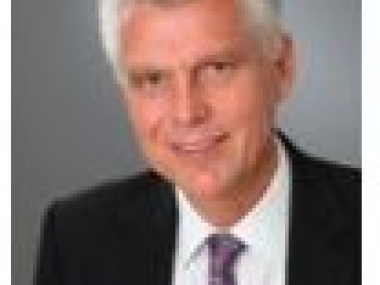Wolfgang Domian Portrait - "Let's be inspired by others' good practices"
Edited on
09 October 2017Wolfgang Domian, Lead Partner for the URBACT project OP-ACT is a man of conviction. He is General Manager of city services for the city of Leoben, Austria, which has 25,000 inhabitants. He is convinced that his city's declining population is not a fatality. He shares with us his vision and his projects.

After Wolfgan Domian finished studying law in Graz, he became responsible for Germany, the United Kingdom and Northern Europe in the sales department of Voestalpine, a public mining and steelworks company. In 1985, he chose to return to his hometown of Leoben and to devote himself to public administration.
His career path is somewhat atypical, because inhabitants of Leoben—especially the young people—are often obliged to leave the city to find work elsewhere. Yet the city is not lacking in strong points. Wolfgang Domian mentions, for example, the architecture that is reminiscent of Vienna and a particularly friendly atmosphere. "In summer," he says, "everyone gathers on the central square, which was redone in 2000, like a giant open-air lounge." Another asset is the prestigious scientific university, which since the nineteenth century has been training engineers whose skills are appreciated and sought after by major industrial and oil companies around the world. However, for several years now, the city's population has been diminishing as a result, primarily, of a decline in industrial jobs. Today, Voestalpine only has 2,500 jobs, compared with 9,000 in 1990. Paradoxically, the decline in the population also in part explains why the unemployment rate is under the national average.
A challenge: reviving the city and the region
The challenge Wolfgang Domian and his teams face is to create the conditions for economic development that will retain the inhabitants, or even encourage them to come back. To do so, he is partnered with the university to create firms that will bring business to the city and the region. These projects are financed for the most part by the university, by research funds, and by the Austrian state, but also by the city of Leoben, which participates on the condition that the business takes place in the city and that its headquarters are located there. Wolfgang Domian's role consists of negotiating contracts, creating the firms and defining the precise role the municipality plays in these firms.
Bringing financing together for efficient local development
More generally, his mission is reminiscent of that of an orchestra conductor: he has to succeed in combining a variety of financial resources, which come from the European Union, the Austrian state and the municipality, in order to improve local profitability and how the projects fit together. "Developing tourism only has a small impact if we do not also develop the city's local and cultural life at the same time," says Wolfgang Domian as a reminder. The idea then is to bring projects and sources of financing together for consistent and efficient horizontal development.
Benefiting from others' ideas and experiences: the OP-ACT project
The URBACT OP-ACT project—Options of actions for the strategic positioning of small and medium-sized cities, which is led by the city of Leoben, takes this approach. Indeed, OP-ACT is looking into ways to both check the population loss in small and medium-sized industrial cities and to promote strategies for regional cooperation and synergy. The idea is to highlight the sometimes-neglected assets of these cities, in order to stabilise financial situations and populations and to encourage young people to stay. On a regional level, it is a question of mutualising resources in order to provide inhabitants with the same services and facilities as found in larger cities and to generate sustainable economic activity.
Wolfgang Domian explains that his involvement in the project has already led to ideas, information and discussions related to shared challenges, including stabilising the number of young people in regions with weak economic dynamics; mobilising recently retired people to be involved in tasks for the collective good; and population migrations. These issues have allowed Wolfgang to truly measure the importance of mastering languages and of discussions.
"It is key to discuss with European partners so they we don't have to reinvent the wheel each time. There are a lot of interesting ideas, and the idea is not to copy them in an identical form, but to adapt them to the context. You need to understand the systems and how an idea fits into them. Then you can adapt the structures and ideas to the local context and issues."
Background:
- 1957: Born in Leoben
- 1976-1983: Doctorate in law from the University of Graz
- 1984-1985: Voestalpine sales department manager for Germany, United Kingdom and Northern Europe.
- 1985-1998: Head of the legal department for the municipality of Leoben
- Since 1998: Head of municipal administration in Leoben
- Since 2009: Lead Partner of the URBACT OP-ACT project
Read more:
- OP-ACT - URBACT website
Submitted by admin on




